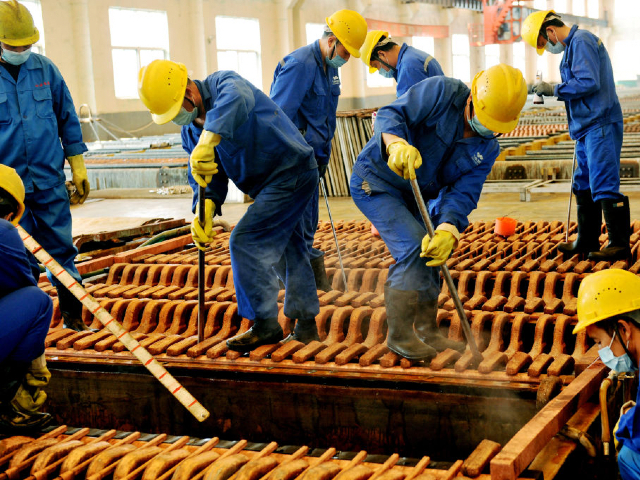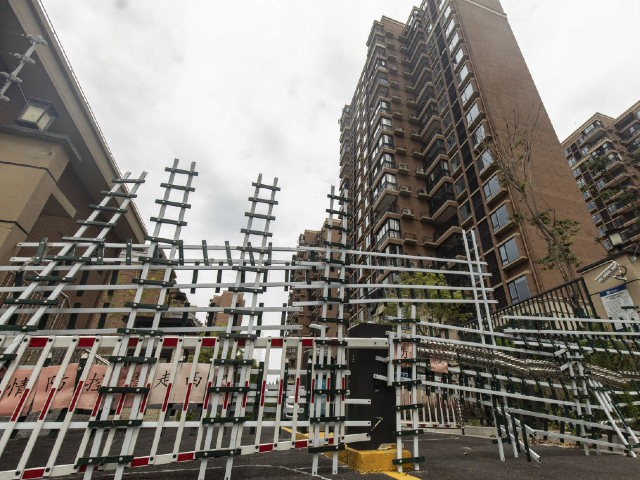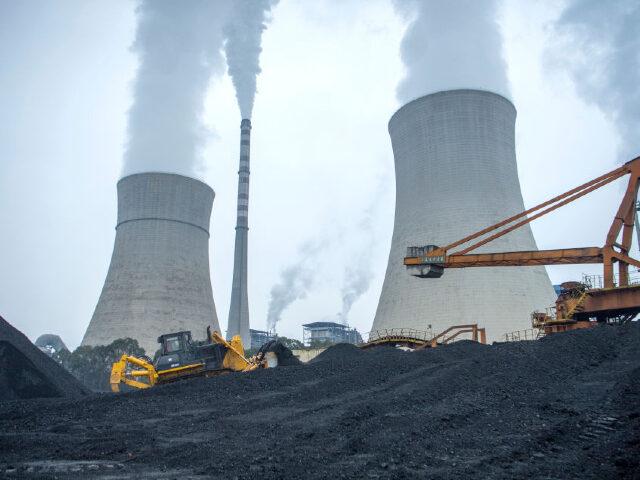Less than a month after China proudly boasted that its heavy use of coal-fired power plants would spare the country from blackouts and keep its factories humming, Chinese industrial provinces are imposing power restrictions to control soaring demand for electricity.
The South China Morning Post (SCMP) noted on Friday these power restrictions are explicitly hitting Chinese heavy industry – the very same power consumers Chinese officials were bragging about keeping satisfied with their mountains of burning coal in July:
Jiangsu, China’s second wealthiest province that neighbors Shanghai, has imposed restrictions on some steel mills and copper plants, the province’s steel association and industry research group Shanghai Metals Market said on Friday.
The central province of Anhui has also shut down all independently operated electric furnace facilities, which produce steel. Some production lines in long process steel mills are facing partial or complete closure, the industry group said.
Anhui also appealed on Thursday to the manufacturing industry, businesses, the public sector and individuals to ease energy use.
More such restrictions were imposed on Zhejiang, the heavily industrialized province adjacent to lockdown-ravaged Shanghai, and other manufacturing hubs in Guangdong and Sichuan.

HENGFENG, CHINA – APRIL 13 2020: Workers labor in a plant of electrolytic copper in Hengfeng county in central China’s Jiangxi province Monday, April 13, 2020.
Power restrictions were necessary even though China hit record highs for coal consumption and stockpiling. China’s National Energy Administration (NEA) said the limits would probably be necessary until later in August when temperatures and electrical demand are expected to subside.
The same thing happened in roughly the same areas last year when summer electrical demands overloaded China’s power generation capacity. In that case, the restrictions lasted until well into September, causing some jitters in global supply chains.
China’s determination to buy up every scrap of coal on the planet in 2022 was intended to avert the 2021 blackout situation. Coal imports surged by almost 25 percent in July, accompanied by official proclamations that power rationing would not be necessary this year, but those promises were not kept. One reason for the current crisis is that Chinese officials apparently overestimated how much the demand for electric power would slump during citywide “zero Covid” lockdowns.

Barricades from recent Covid-related lockdowns block an entrance leading to Country Garden Holdings Co.’s Fengming Haishang residential development in Shanghai, China, on Tuesday, July 12, 2022. Photographer: Qilai Shen/Bloomberg via Getty Images
The Diplomat last week suggested dictator Xi Jinping’s maniacal focus on economy-destroying coronavirus lockdowns might be secretly intended as a means of pumping the brakes on economic growth and rising prosperity for the Chinese middle class:
China’s zero-COVID policy is an extreme reversal of policies that aimed to foment growth in the 1990s and 2000s even at the expense of the environment and the well-being of the labor force. Although this trend of encouraging growth at any cost continued somewhat into the 2010s, it now appears that this is no longer expected.
What is more, Chinese households that – until COVID-19 hit – had been trained to buy more and keep up with their developed-country peers in looks and lifestyle have found their ability to purchase goods and services severely curtailed under lockdown. Consumers were limited in their ability to access stores and even receive online deliveries during lockdown, resulting in sharp drop-offs in consumption. This is an interesting phenomenon, as Chinese leaders have repeatedly called for households to consume ever more to bolster the economy. However now this eminent policy goal has taken a back seat to stamping out the spread of COVID-19.
If the Chinese Communist Party is using “zero-Covid” lockdowns to ramp the economy down and curb consumer demand, it might help explain why Communist officials seem to perpetually underestimate electrical demand – power restrictions are another way of shifting the economy into a lower gear.
The danger for Xi is that foreign investors are also affected by coronavirus lockdowns, power restrictions, and blackouts, and they are pulling out of China in greater numbers than the Communist Party seems to have anticipated.
“One survey reported that almost 60 percent of European businesses stated they were cutting revenue projections for 2022, which does not bode well for China’s attractiveness to overseas firms. The China that once opened up special economic zones to produce goods mainly for export and created a unique environment catering to hosting foreign businesses is becoming ever less important to Beijing,” The Diplomat observed.

COMMENTS
Please let us know if you're having issues with commenting.